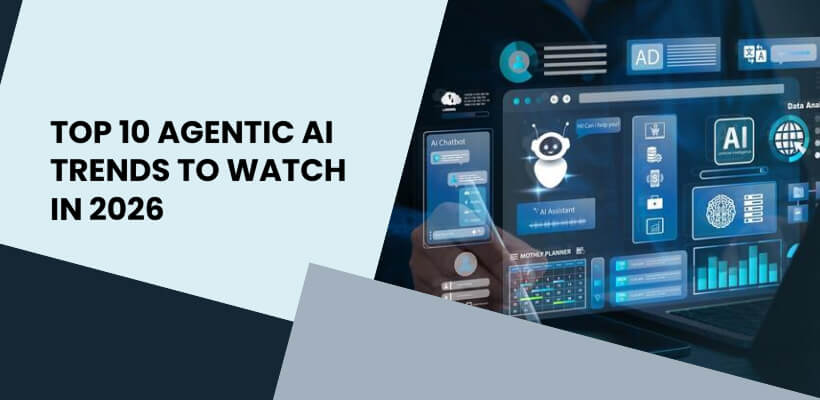AI Agents 2026: Trends Shaping the Future
Explore the transformative AI agent trends for 2026, including hyper-personalization, autonomy, and ethics, reshaping business and technology landscapes.

AI Agents 2026: Trends Shaping the Future
As artificial intelligence (AI) continues to evolve, AI agents—autonomous software entities capable of performing complex tasks—are becoming increasingly integral to business, technology, and everyday life. According to recent insights highlighted by Forbes and corroborated by industry experts, eight key trends are set to define the AI agent landscape in 2026. These trends reflect advancements in AI autonomy, integration, ethics, and user interaction, signaling a transformative shift in how AI agents operate and impact various sectors.
1. Hyper-Personalized AI Agents
By 2026, AI agents will deliver unprecedented levels of personalization. Leveraging advanced machine learning, natural language understanding, and real-time data analysis, AI agents will tailor their responses and actions uniquely to each user. This goes beyond current personalization, incorporating emotional intelligence and contextual awareness to anticipate needs before users explicitly communicate them. For example:
- In healthcare, AI will provide individualized patient care plans.
- In retail, agents will curate shopping experiences based on subtle behavioral cues.
2. Autonomous Decision-Making with Human Oversight
AI agents are expected to gain greater autonomy, capable of making complex decisions with minimal human intervention. However, this autonomy will be balanced by sophisticated human oversight frameworks designed to ensure accountability and ethical compliance. Hybrid models combining AI efficiency with human judgment will dominate sectors like:
- Finance
- Legal services
- Critical infrastructure management
3. Multi-Modal Interaction Capabilities
The next generation of AI agents will seamlessly integrate multi-modal inputs such as voice, text, gestures, and visual data. This will allow users to interact with AI agents in more natural and intuitive ways across devices and environments. For instance:
- Smart home systems will respond not only to voice commands but also to facial expressions or hand gestures.
4. Explainability and Transparency as Standard
With growing scrutiny over AI decision-making, explainability will become a mandatory feature of AI agents. Users and regulators alike will demand clear insights into how AI agents arrive at their recommendations or actions. This trend aligns with broader regulatory efforts worldwide, including the EU’s AI Act, which emphasizes transparency and user rights. Explainable AI agents will build trust by providing understandable justifications for their behavior.
5. AI Agents as Collaborative Partners
Rather than mere tools, AI agents will increasingly act as collaborators alongside humans. This shift is evident in creative industries, research, and knowledge work, where AI agents assist with ideation, data synthesis, and problem-solving. The collaborative model boosts productivity by complementing human creativity and expertise rather than replacing it.
6. Integration Across Ecosystems and Platforms
Interoperability will be a hallmark of AI agents in 2026. Agents will operate fluidly across various platforms, devices, and ecosystems—whether in smart cities, enterprise IT, or consumer environments. This interconnectedness will enable AI agents to aggregate and synthesize information from diverse sources, delivering more holistic and coordinated outcomes.
7. Ethical AI Agents with Built-In Value Alignment
Ethics in AI will move from debate to implementation. AI agents will be designed with embedded value alignment mechanisms to ensure their actions conform to societal norms and organizational ethics. This includes bias mitigation techniques and safeguards against misuse or harmful behaviors. Companies are increasingly investing in ethical AI frameworks to comply with emerging standards and protect brand reputation.
8. AI Agents Powered by Advances in Generative AI
The surge in generative AI technologies, such as large language models and image synthesis, will fundamentally enhance AI agents’ capabilities. These agents will generate new content, ideas, and solutions dynamically, making them more versatile in domains like:
- Customer service
- Content creation
- Software development
Industry Implications and Outlook
The identified trends underscore a future where AI agents are deeply embedded in society’s fabric, driving efficiency and innovation while raising important questions about governance and ethics. Businesses must prepare for these changes by investing in AI literacy, developing robust oversight mechanisms, and fostering human-AI collaboration cultures.
The rise of hyper-personalized and explainable AI agents will reshape customer engagement, healthcare, finance, and more, offering tailored, transparent, and trustworthy experiences. Meanwhile, the integration of generative AI expands the creative horizons of AI agents, positioning them as indispensable partners in innovation.
Regulators and policymakers will play a key role in shaping the rules that govern AI agent deployment, especially around transparency, privacy, and ethical use. Organizations that proactively adopt these trends and standards are poised to gain competitive advantages in the rapidly evolving AI landscape.
Conclusion
The AI agent trends for 2026 represent a pivotal evolution in how autonomous systems interact with humans and the world. From hyper-personalization and multi-modal interactions to ethical frameworks and generative AI integration, these trends collectively point to more intelligent, trustworthy, and collaborative AI agents. Preparing for these developments now will ensure businesses, governments, and individuals harness AI’s full potential responsibly and effectively in the years ahead.



